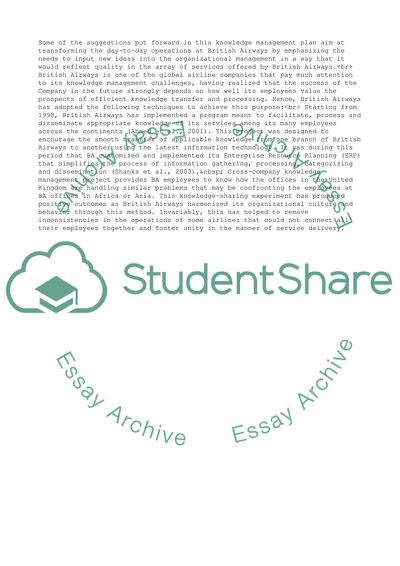Cite this document
(A Comprehensive Knowledge Management Plan for the British Airways Case Study, n.d.)
A Comprehensive Knowledge Management Plan for the British Airways Case Study. Retrieved from https://studentshare.org/management/1573382-the-knowledge-management-plan
A Comprehensive Knowledge Management Plan for the British Airways Case Study. Retrieved from https://studentshare.org/management/1573382-the-knowledge-management-plan
(A Comprehensive Knowledge Management Plan for the British Airways Case Study)
A Comprehensive Knowledge Management Plan for the British Airways Case Study. https://studentshare.org/management/1573382-the-knowledge-management-plan.
A Comprehensive Knowledge Management Plan for the British Airways Case Study. https://studentshare.org/management/1573382-the-knowledge-management-plan.
“A Comprehensive Knowledge Management Plan for the British Airways Case Study”, n.d. https://studentshare.org/management/1573382-the-knowledge-management-plan.


